(An interview with the PrisonLIFE team members: Their experiences, challenges, inspirations, and visions for the future of prison life research)
- What motivated you to be part of the PrisonLIFE project?
- What are the key challenges you faced during your research and how did you overcome them?
- What part of the research was the most inspiring or meaningful to you?
- How did the work on the project and its results contribute to your personal and professional development?
- What is or what could be, in your opinion, the biggest contribution of the project to improving the quality of prison life and the moral and social climate in prisons?
- What surprised you the most during the research?
- How do you see the potential applications of the results of this project in the future?
- What would you recommend to those who want to do research on similar topics?
- What are the main lessons you learned about prison life and its connection to society?
- In what way did the PrisonLIFE project contribute to the development of research on prison life?
- How do you plan to continue working on the topics initiated by the PrisonLIFE project?
“The motivation for starting the PrisonLIFE project came from the desire to answer research questions at the intersection of several key concepts and came from three seemingly incompatible research directions. The first one is quality of life as a general concept, which, along with involvement in activities, relationships and the wider social context, is present in all environments, even in a specific environment such as prison. The second research line refers to the prison system as a society in miniature, which reflects wider social changes and at the same time, it functions as an isolated world for itself, with its own rules, norms and dynamics, with its effectiveness being repeatedly questioned and with a constant search for the answer to what determines the success of correctional treatment in prison. The third sociological challenge is to investigate the mechanisms that enable or hinder the social reintegration of individuals, taking into account the broader picture of social justice and the concept of well-being as a basis for adaptation and turning towards positive social values.
The second wave of motivation came from the high competitiveness of the competition for financing scientific research projects, which required setting up a project that would be socially responsible, proactive and scientifically rigorous at the same time. Collaboration with prestigious institutions and the biggest research names in the field was also key, which the Institute of Criminology at the University of Cambridge and the direct support of Professor Alison Liebling certainly are. All of the above has further strengthened the ambition to create a project that will leave a lasting mark both in the scientific community and society.” Milena Milićević
“Expanding and deepening my knowledge about women in prison was my key motivation to be part of the project. My first encounter with the prison environment dates back to the end of the 1990s when I was involved in researching living conditions in the Penitentiary for Women in Požarevac. After that, until 2015, on several occasions, I had the opportunity to participate in action research related to the position of women in prison and the implementation of programs aimed at preparing convicts for release, raising awareness about victims and restorative justice. The PrisonLIFE project gave me the opportunity to discover what the quality of life is like in the only women’s prison in Serbia today. It allowed me to compare the situation in this institution today with the previous periods and find out in which direction further efforts should go to improve the position of women in prison as particularly vulnerable social groups.” Sanja Ćopić
“Starting work at the Institute for Criminological and Sociological Research opened the way for me to participate in several researches that preceded the PrisonLIFE project, and each of those researches had an impact on my professional development. However, for any teamwork to be successful, it is necessary to have a good team. The proposal of the team members, whom I see as serious, professional and very collegial persons who selflessly share their knowledge and experience, was the first reason why I accepted participation in the project. Then, what is equally important is the very topic of the project, which is the quality of prison life in Serbia. Since my previous research work has primarily focused on prison sentences and their execution, it was a logical step for me to move further, step out of my comfort zone and the analysis of criminal law institutes, and embark on a real transdisciplinary project that involves looking at the quality of the prison of life from the point of view of different disciplines. As an additional motive, there is also a certain competitive spirit because, at the time of writing the project and submitting the project documentation, we did not know what the final outcome would be, i.e. whether the PrisonLIFE project would be financed by the Science Fund of the Republic of Serbia, within the Ideas program, since the project documentation submitted by approximately one thousand teams.” Nikola Vujičić
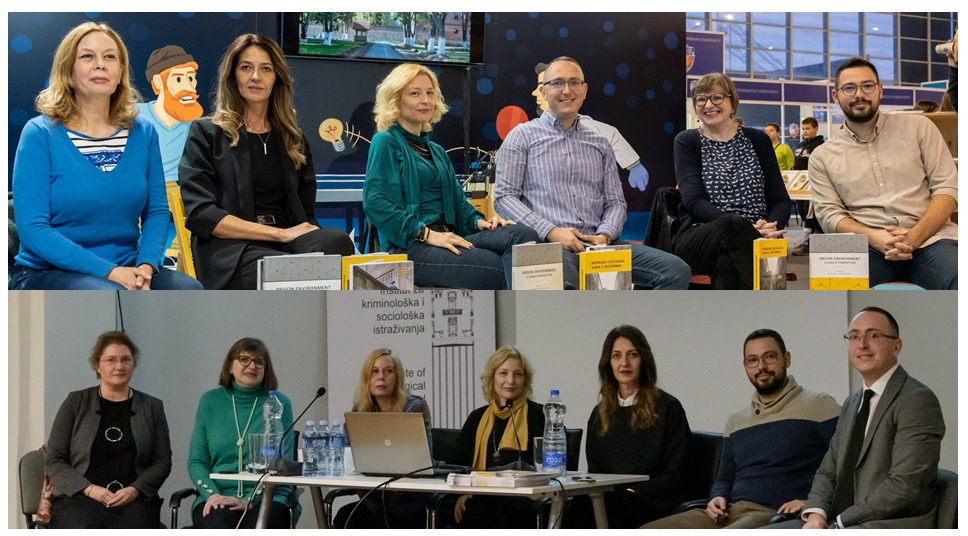
- What are the key challenges you faced during your research and how did you overcome them?
“One of the main challenges was building a foundation of trust with convicted individuals and prison staff, but also with the general public, including a segment of the scientific and research community. The fact is that research in the prison environment carries specific obstacles because both convicts and employees are often sceptical of external researchers. At the same time, the public often has prejudices towards the topic and pre-formed ideas about what life in prison must look like, and our scientific community is sometimes sceptical when different views on existing topics or new ways of scientific communication are proposed. That’s why we carefully planned and measured each step, nurtured transparent communication with all actors and relied on the support that came from the team while consistently showing respect to all actors directly or indirectly interested in the topic of our project. Teamwork is key, and we were lucky that the Science Fund recognised the potential of the project proposal and gave us their trust and support.” Milena Milena
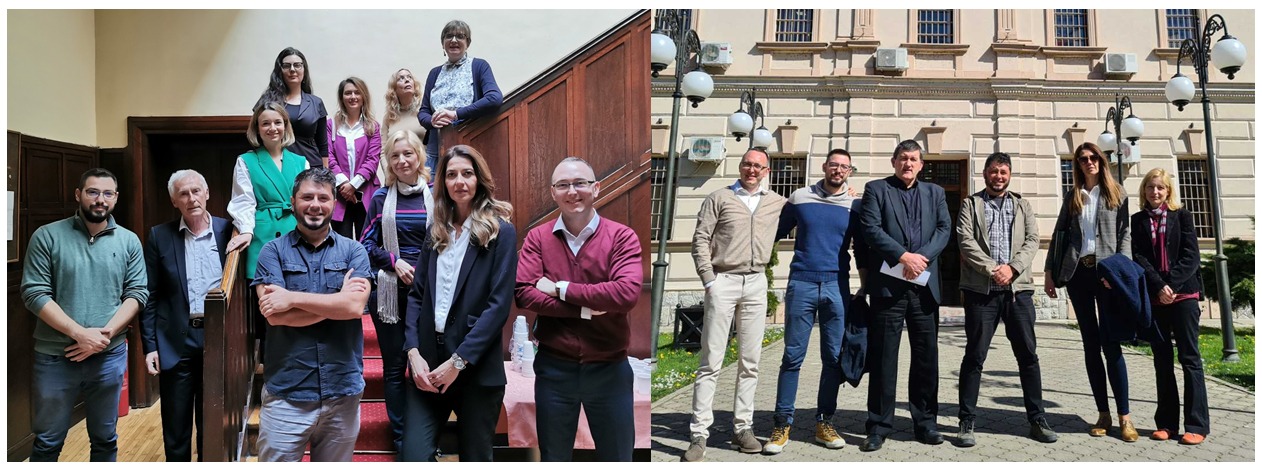
- What part of the research was the most inspiring or meaningful to you?
“The most inspiring and significant part of the research for me was photographing the daily life of convicts in the District Prison in Belgrade. I am grateful that after photographing the work of convicts with horses and dogs in the penitentiary in Sremska Mitrovica, I had the opportunity to continue making documentary photographs that allow the wider community to gain an insight into the challenges of life in prison, thus breaking prejudices and stereotypes, and encouraging understanding and compassion in society for anyone who needs support to get back on track.” Ana Batrićević
“For me personally, every segment and planned activity of the PrisonLIFE project was extremely important, both on a personal and professional level.
If I were to single out some part of the research, it would be field research. First, team members’ field trips, cooperation in work, socializing and overcoming unplanned obstacles and challenges are precious experiences for me. Then, entering the prison, formal and informal conversations with convicts, educators, heads of services, and managers enriched my research experience and confirmed the previous theoretical starting points, namely ‘that every prison has its own character, i.e. its own climate’. And that is what is visible, tangible, measurable (and changeable). The prison’s social and moral climate is shaped by interpersonal relations in the prison, respect and humanity in the real, practical, full meaning and sense of these words.” Ljeposava Ilijić
“It’s interesting to think about correctional institutions as mini-societies. We can say that it is not just a small town but a mini-society that, apart from its space, urban structure, population and system instances, also has its own culture. The social processes that take place in that society and culture can be described in part using the social prison climate, in the same way in which the main themes that dominate public opinion can be described in any society. It is not only a description of the state of a community but also the way in which that state can be improved based on the opinion of the residents of that community and not some external actor who makes decisions on his own. In this context, it is anthropological research that connects the inhabitants of a community who are forced to live in it with the imposed administrative system of that same community, where both try to improve the living conditions they are forced to lead in a small space of possibilities (every similarity with the description of the life(s) of the rest of the population is completely intentional). If we could, at least to a small extent, be mediators and facilitators of those relationships between people and structures, then it was worth it.” Janko Međedović
“It is difficult to answer this question, but when I look back over the past three years, it seems that each phase has been very inspiring while equally significant. I will highlight a few. First of all, the work on the translation of the questionnaire, i.e. its cultural validation, was a big challenge because numerous variables had to be translated into the Serbian language in such a way that the convicts themselves could understand them well. As the second, perhaps more important part, I would mention the field part of the research in different penitentiary institutions, interviews with male and female convicts, but also with employees of various prison services. However, the field part of the research has another equally important component, which is the cooperation of team members, mutual support and true teamwork, which is a very important factor in the success of the project. In the end, if I have to choose what is most significant, then it would be the research results that have been translated into numerous publications and made available not only to science and the profession but also to the general public through the media, social networks and the project website.” Nikola Vujičić
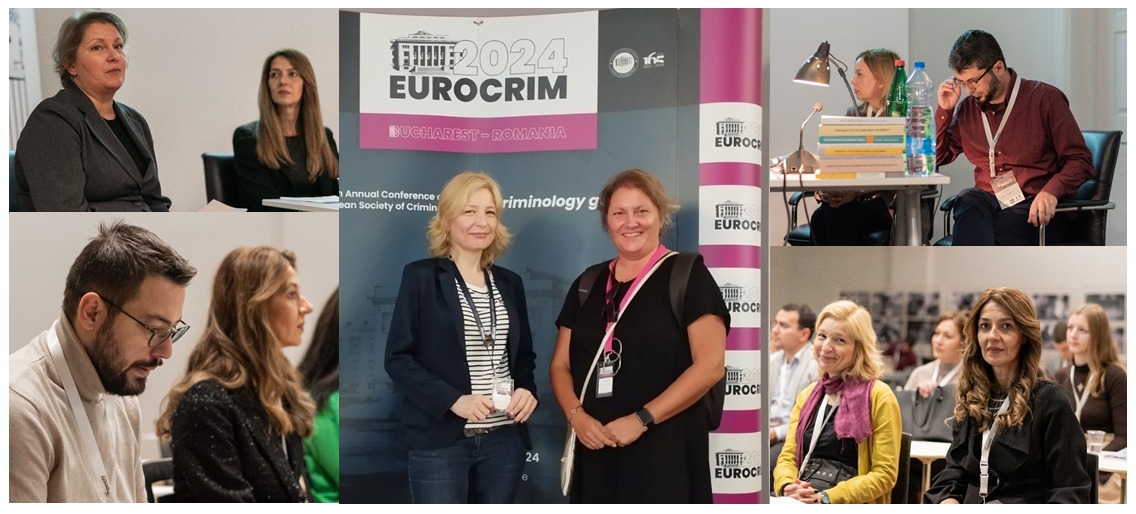
- How did the work on the project and its results contribute to your personal and professional development?
“Working on the project was invaluable for my development because I went through the entire research process – from formulating the research question and organizing focus groups through adapting instruments for specific populations to conducting research in the challenging conditions of a prison environment. Such an experience makes it possible to get to know the whole and complex process, from the idea through the implementation, all the way to the publication of scientific works.
Direct contact with the prison population and experts in the field allowed me to gain a deeper understanding of the daily challenges of prison life. Such immediate insight not only strengthens theoretical knowledge but also contributes to the ability to apply research results in a way that has practical significance.
In addition, collaboration with experts from various disciplines, including special pedagogy, sociology, criminology and criminal law, broadened my view of research and opened space for interdisciplinary dialogue. Such an exchange of perspectives enables a deeper analysis of problems and improves the ability to work together on complex projects. The project thus becomes crucial not only for scientific development but also for the expansion of professional connections and opportunities for future cooperation.” Nikola Drndarević
“Professionally, the results of the project contributed to me gaining new knowledge and experience, which enabled me to pass on the knowledge to students who are studying to one day work in the criminal sanctions enforcement system. This, on the other hand, makes me happy on a personal level because I consider the transfer of knowledge and experience to be a key resource for future generations of those who will engage in research or work in practice.” Sanja Ćopić

- What is or what could be, in your opinion, the biggest contribution of the project to improving the quality of prison life and the moral and social climate in prisons?
“The biggest contribution of the project is presenting a new perspective on the quality of prison life by introducing the categories of fairness, consistency and intelligent trust in relations between prison employees and convicted persons.” Olivera Pavićević
“The importance of the PRACTICE of sharing experience is one of the key recommendations made during the implementation of PrisonLIFE project activities, as well as the necessity of continuous monitoring and evaluation of the moral and social climate in institutions where persons deprived of liberty are located. The application of the MQPL questionnaire, adapted for use in the prison system of the Republic of Serbia, could play an important role in this process.” Ivana Stevanović
“I see the greatest contribution of the project in the recommendations for improving the quality of prison life and the moral and social climate in prisons, which were developed based on the findings of empirical research because they offer clear guidelines for further efforts to reform policies and practices to improve the quality of life in prisons. Related to that, the project made an important contribution to deepening the dialogue and cooperation of theory, research and practice, which I consider a key prerequisite for further work on advocating for regular monitoring and evaluation of the quality of prison life and improvement of the social climate, which, ultimately, should enable improving the position of employees in prisons, and thus the quality of their lives.” Sanja Ćopić

- What surprised you the most during the research?
“I was most surprised by the ability of prison security personnel to establish the above-mentioned standards of behaviour towards convicted persons through practice and to show a deep understanding of the complexity and sensitivity of this interaction, which is exposed to a constant risk of imbalance of various kinds.” Olivera Pavićević
“I was surprised by how open and willing some of the convicts and staff members, ie employees, are to share their experiences, even on very personal and difficult topics. On the other hand, I was also surprised by the extreme polarization of the public when it comes to prison topics – from complete indifference to strong prejudices. I was surprised by how strongly connected and close the prison moral and social climate is in the different prison systems in our region.” Milena Milićević
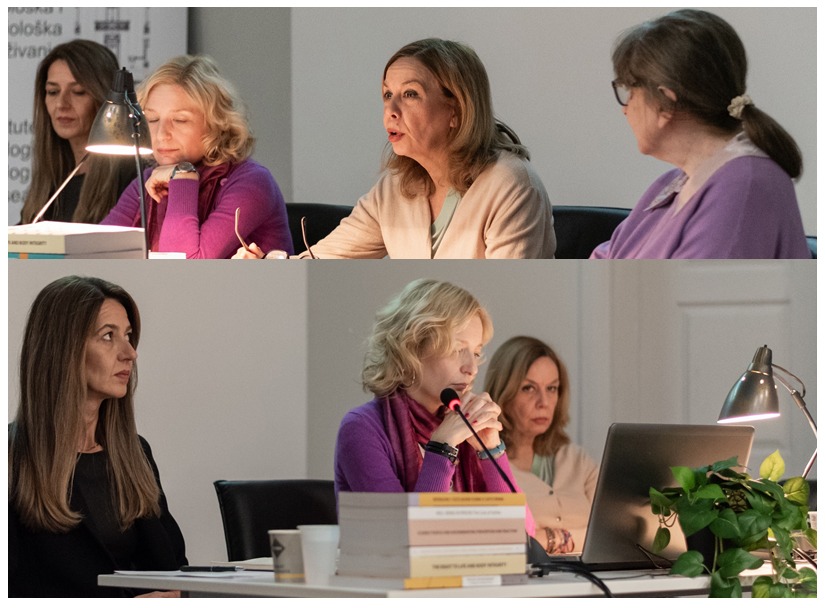
- How do you see the potential applications of the results of this project in the future?
“The results of this project should contribute to the advancement and improvement of the moral and social climate in prisons in the future and, in the long term, to the reduction of recidivism. Achieving these desired results depends on the willingness of decision-makers and experts involved in working with convicted persons to implement the recommendations and guidelines of our team, of course, in accordance with current possibilities.” Ana Batrićević
“Regular monitoring and evaluation of the quality of prison life through the application of the MQPL questionnaire in all penitentiary institutions and district prisons, but also more widely – the adaptation and application of the questionnaire in all institutions where persons are deprived of their liberty for any reason, including detention units, institutions for the execution of institutional educational measures for minors, health and social protection institutions and the like. This would ensure the regular collection of data, which is an important basis for developing policies and practices that will ensure an adequate moral and social climate and quality of life for those who cannot leave such institutions when they wish.” Sanja Ćopić
“I don’t see any. Any change requires investment. In my subjective opinion and belief, the state of Serbia does not invest or plan to invest in any aspect of the crime suppression process. There are exact ways of crime prevention, active work on the resocialization of convicted persons and post-penal acceptance that can be implemented in our country – the state has not yet invested any money or other resources to implement them and does not show any intentions to do so. It would be unusual to expect it to do so in the case of the quality of life of convicted persons as a possibly relatively distal predictor of future criminal recidivism. The authorities in the Republic of Serbia publicly present the position that it is more important for them to tighten the penal policy than to meet something that could be interpreted as a liberal demand for improving the quality of life of convicted individuals.” Janko Međedović

- What would you recommend to those who want to do research on similar topics?
“I recommend having a clear vision and enough flexibility to adapt to unforeseen situations. It is crucial to listen to and respect all actors and understand criticism as an opportunity for change and improvement and crises as opportunities for personal and professional development. Teamwork and open communication are the basis of success, as is the courage to explore challenging topics while always respecting ethical principles. There is always room for one more research question.” Milena Milićević
“Persistence is essential, considering that each prison is a distinct entity. This unique story shares similarities with other correctional institutions but also possesses enough differences that warrant examination. This approach is crucial for making comparisons, drawing conclusions, and providing appropriate recommendations for improving practice. Continuous monitoring is necessary to observe progress in practice, whether it involves assessing the quality of prison life or examining the application of a legal institute. Moreover, I believe the issues of imprisonment and the execution of prison sentences should always be approached from the perspective of multiple disciplines rather than just one. Teamwork undoubtedly enhances the quality of all research.” Aleksandar Stevanović
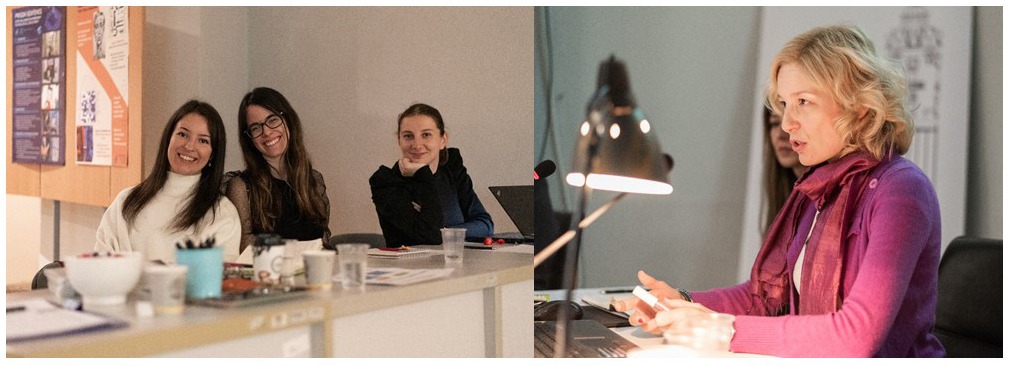
- What are the main lessons you learned about prison life and its connection to society?
“No matter how closed and formally regulated the prison system is, all changes on the global, social, economic and social levels are also reflected in the prison system. Changes at the macro and micro social level are reflected in changes in penal policies, prison management methods and treatment of convicts. A prison is a mirror of a society, while the treatment of convicts proves how much basic pedagogical principles and respect for basic human rights are really respected in practice.
The selfless commitment of professional workers in the prison, their belief in the possibility of positive changes in the behaviour of convicts, and the work they perform with enthusiasm in conditions that are not the most ideal cause deep respect.” Ljeposava Ilijić
“One of the key connections between prison life and society is interpersonal relationships. In prison, however, those relationships have a special dimension because they include a moment of punishment, isolation from society and deprivation of freedom. It is a situation where one party has the power and authority, and thus, the responsibility for treating a person who is in such a vulnerable position is more pronounced.
In such a context, how power is exercised is crucial. Professionalism and respect are essential, but preventing further pain is just as important. This means that a person must not be reduced to a number or treated exclusively through the prism of punishment, but the circumstances in which he is found must be recognised – both because of the crime he committed and the deprivation of freedom.
The balance between adequate application of authority and human warmth is crucial. Such a moral and social climate not only reduces the harmful effects of the sentence but can also have healing potential, allowing the person to better integrate into society after serving the sentence.” Nikola Drndarević
“Life in prison affects all of us. Both the moral and social climate are changeable.” Milena Milićević
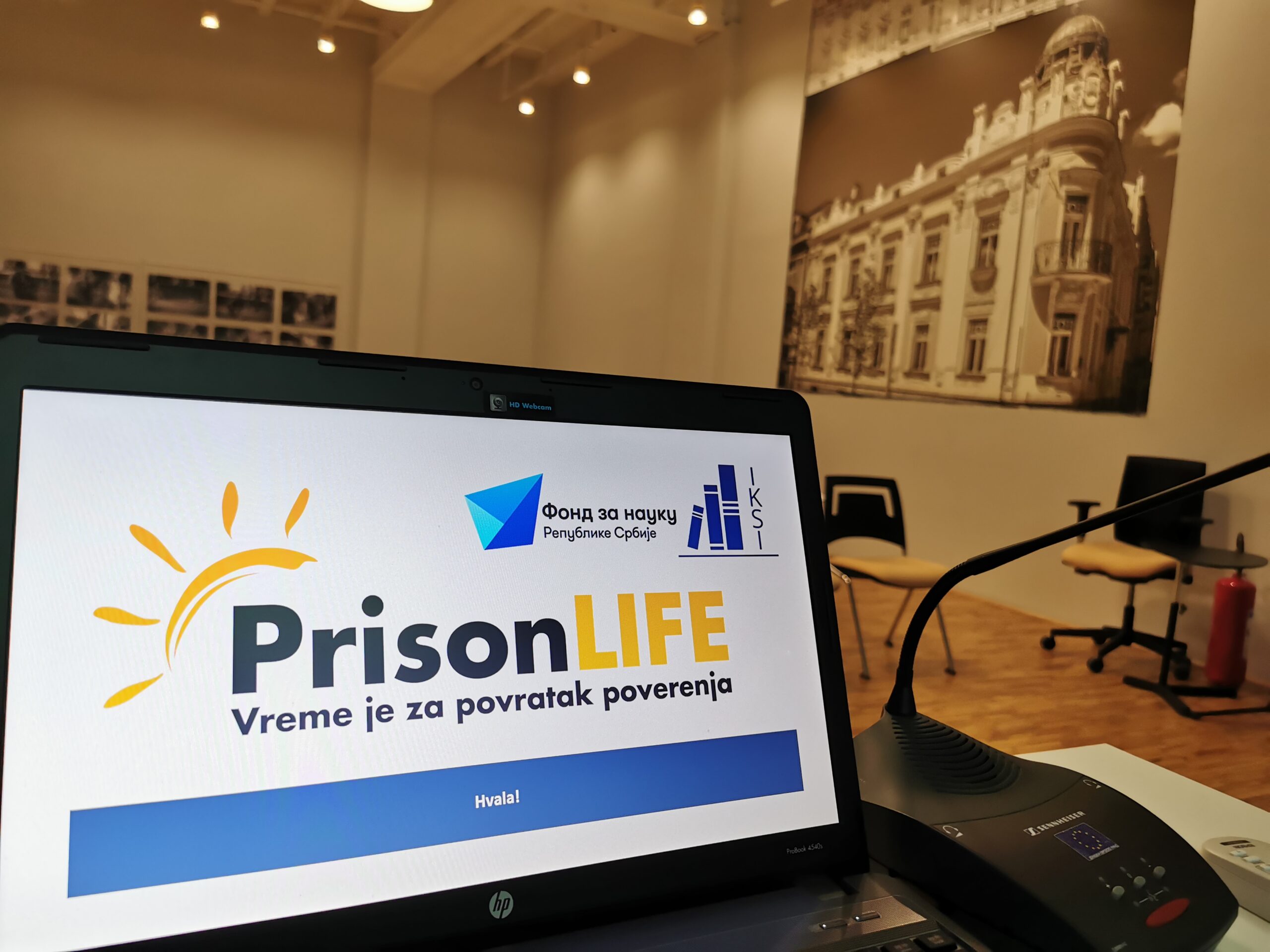
- In what way did the PrisonLIFE project contribute to the development of research on prison life?
“The project opened up new questions about the dynamics of prison life and provided innovative methodological approaches that can serve as an example for future research. However, PrisonLIFE was not just an isolated research – its importance and impact go beyond the formal framework of the project. Project activities have shown how influential the promotion of science is and that significant progress is possible even in less attractive social sciences, with a clear goal, teamwork and dedication, but also with indispensable cooperation, co-creation and transfer of knowledge.” Milena Milićević

- How do you plan to continue working on the topics initiated by the PrisonLIFE project?
“A special focus in research on the quality of life should also be directed to institutions where juvenile offenders are serving criminal sanctions, such as educational measures of referral to an educational institution and correctional home or juvenile prison sentences. Also, future research should be conducted not only in penitentiary institutions but also in other institutions for the execution of the sentence of deprivation of liberty, as well as the accommodation of persons deprived of their liberty on other grounds (for example, in detention units, health institutions, institutions in the social welfare system protection and the like), in order to develop policies and practice of dealing with persons deprived of their liberty based on empirical evidence, with the ultimate goal of reducing recidivism in the commission of criminal offences in a social community. This is of importance in order to further improve public policies in this are.” Ivana Stevanović
“Working on the project, especially the research results, has raised numerous questions and dilemmas that are not easy to answer. As a pioneering endeavour in Serbia, particularly regarding the application of the MQPL questionnaire, this project, beyond its significant scientific contribution, has fostered a broad exchange of opinions among the scientific community, professionals, and the general public. In my future research work, I would particularly focus on further evaluating the quality of prison life, with an emphasis on district prisons. Additionally, in further research I would like to look at the perception of life in a prison environment from the point of view of employees in institutions for the execution of prison sentences in Serbia.” Aleksandar Stevanović
“The PrisonLIFE project methodologically highlighted the importance of cultural and linguistic adaptation of instruments, standardization of research tools and integration of participatory methods. We plan to continue working on these aspects through an interdisciplinary approach, improve the validity of the research and enable a deeper understanding of complex social phenomena while adapting the instruments to different cultural and institutional contexts.“ Milena Milićević
Questions asked by
Milena Milićević, PrisonLIFE
